Filter by
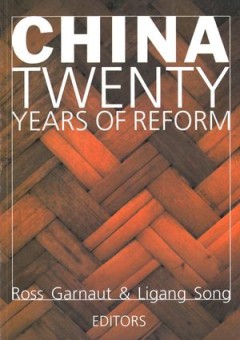
China : Twenty Years of Economic Reform
China: Twenty Years of Reform outlines the experiences of China over the past two decades. It highlights the processes of reform, successes achieved, and problems faced during the economic transition. “China, and its relations with the international community, have been transformed. China’s economy has expanded five times, and its foreign trade by twelve. It has greatly increased consumptio…
- Edition
- -
- ISBN/ISSN
- 9781922144454
- Collation
- -
- Series Title
- -
- Call Number
- 650
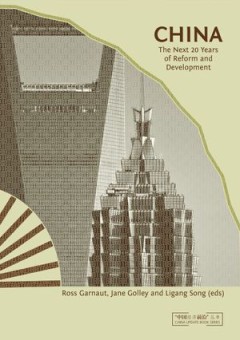
China : The Next Twenty Years of Reform and Development
China has made some remarkable achievements during the first three decades of economic reform and opening up, rising to become one of the world’s most dynamic and globally-integrated market economies. Yet there remains much unfinished business on the reform and development agenda, coupled with newly emerging challenges. China: The Next Twenty Years of Reform and Development highlights how the…
- Edition
- -
- ISBN/ISSN
- 9781921666292
- Collation
- -
- Series Title
- -
- Call Number
- 650
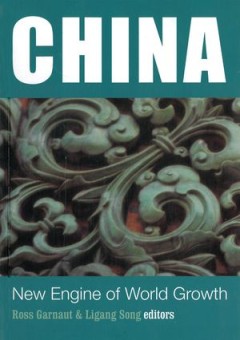
China : New Engine of World Growth
Twenty-five years of reform have transformed China from a centrally planned and closed system to a predominantly market-driven and open economy. As a consequence, China is emerging as the new powerhouse for the world economy. China: new engine for world growth discusses the impact and significance of this transformation. It points out risks to the growth process and unfinished tasks of reform. …
- Edition
- -
- ISBN/ISSN
- 9781922144546
- Collation
- -
- Series Title
- -
- Call Number
- 650
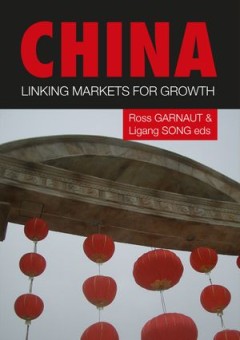
China : Linking Markets For Growth
China’s prosperity is at the core of the emerging Platinum Age of global economic growth. Rapid economic growth has been underpinned by expansion in its domestic markets, and the integration of domestic and international markets in goods, services, capital, labour and foreign exchange. Global commodity prices have reached historic highs, while China’s capital outflows have helped to hold do…
- Edition
- -
- ISBN/ISSN
- 9781921313387
- Collation
- -
- Series Title
- -
- Call Number
- 650

The China Boom and its Discontents
Economic policy; Commercial policy; Industrialization; Economic conditions; China
- Edition
- -
- ISBN/ISSN
- -
- Collation
- -
- Series Title
- -
- Call Number
- 650
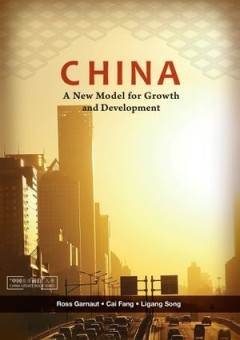
China : a New Model For Growth and Development
The Chinese economy is undergoing profound change in policy and structure. The change is necessary to increase the value of growth to the Chinese
- Edition
- -
- ISBN/ISSN
- 9781921666483
- Collation
- -
- Series Title
- -
- Call Number
- 650
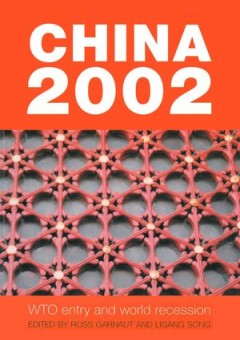
China 2002 : WTO entry and world recession
In 2002 China enters the WTO. Long awaited by the world’s trading economies, it now comes in a year of global recession. What effect will China’s entry into the WTO have at a difficult time? The rapid expansion of China’s trade has required large adjustment in its trading partners, and the expansion and adjustment will accelerate with WTO entry. The internal adjustment pressures in China …
- Edition
- -
- ISBN/ISSN
- 9781922144522
- Collation
- -
- Series Title
- -
- Call Number
- 650

Boats to Burn : Bajo Fishing Activity in the Australian Fishing Zone
Under a Memorandum of Understanding between Indonesia and Australia, traditional Indonesian fishermen are permitted access to fish in a designated area inside the 200 nautical mile Australian Fishing Zone (AFZ). However, crew and vessels are regularly apprehended for illegal fishing activity outside the permitted areas and, after prosecution in Australian courts, their boats and equipment are d…
- Edition
- -
- ISBN/ISSN
- 9781920942953
- Collation
- -
- Series Title
- -
- Call Number
- 650
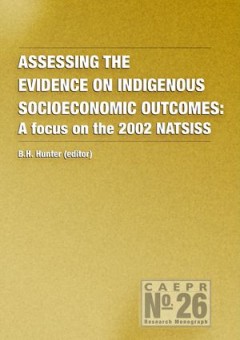
Assessing the evidence on Indigenous socioeconomic outcome
Aboriginal australian; Social conditions; Economic conditions
- Edition
- -
- ISBN/ISSN
- 9781920942649
- Collation
- -
- Series Title
- -
- Call Number
- 650
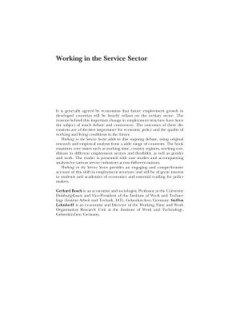
Working in the Service Sector
The rise to prominence of the service sector - heralded over half a century ago as the great hope for the twenty-first century - has come to fruition. In many cases, employment in the service sector now outnumbers that in manufacturing sectors, and it is accepted that in all developed countries, the service sector is the only one in which employment will grow in future. The reasons for this is …
- Edition
- -
- ISBN/ISSN
- 9780203500583
- Collation
- -
- Series Title
- -
- Call Number
- 650
 Computer Science, Information & General Works
Computer Science, Information & General Works  Philosophy & Psychology
Philosophy & Psychology  Religion
Religion  Social Sciences
Social Sciences  Language
Language  Pure Science
Pure Science  Applied Sciences
Applied Sciences  Art & Recreation
Art & Recreation  Literature
Literature  History & Geography
History & Geography